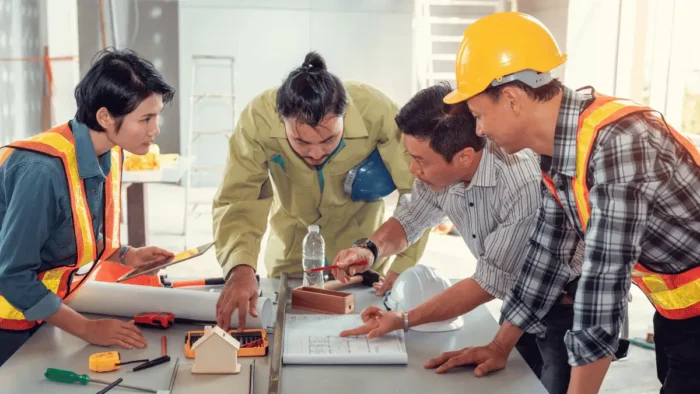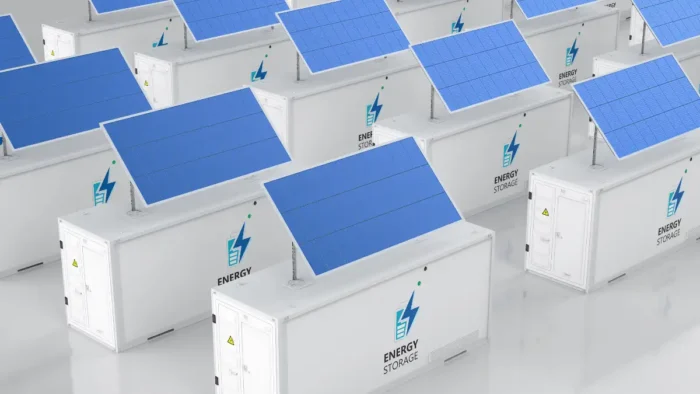Whether you’re planning to build a new home, remodel your existing property, or undertake any other construction project, there are many important considerations to remember.
For example, you need to understand the timeline and budget for the work, as well as any potential zoning laws or even environmental regulations that could apply. Additionally, knowing the latest building materials and technology is wise to ensure your project is constructed safely and efficiently. To help you start your construction journey – whatever type of project it may be – this blog post will provide insight into some crucial steps necessary for successful planning and execution.
Read on to learn why preparation is key when undertaking any construction endeavor.
1. Research Local Building Codes and Regulations
When it comes to construction, safety is the number one priority. That’s why it’s important to research local building codes and regulations to ensure your project is up to par. By familiarizing yourself with local laws, you can avoid facing hefty fines or potential legal action. Additionally, familiarizing yourself with the latest building materials and technology can help ensure your construction project is cost-efficient and constructed safely.
The most common zoning laws and environmental regulations that may apply to your project include the following:
- Stormwater management requirements
- Height and bulk restrictions
- Setbacks from property lines
- Soil erosion and sediment control laws
Understanding what is allowed and what isn’t can save you time and money and potentially prevent delays. So before you begin your next construction project, take the time to do your research and educate yourself on local codes and regulations. It’s the responsible thing to do, and it’ll give you peace of mind knowing that you’re taking all the necessary precautions to ensure the safety of workers and the public.
2. Invest in OSHA 10 Construction Training
Education is key when it comes to safety on the job site. That’s why it’s crucial for all employers should invest in OSHA 10 construction training to provide their employees with the knowledge and skills needed to create a safe work environment. The Occupational Safety and Health Administration (OSHA) sets standards for construction sites to ensure the health and safety of workers. OSHA 10 training provides an in-depth overview of these regulations and what employers need to do to comply with them.
The course covers proper PPE use, lockout/tagout procedures, scaffolding safety, and hazard recognition. It also delves into falls, trenching and excavation, steel erection, and more. By investing in OSHA 10 training, you can ensure that your employees are properly trained on all aspects of job-site safety. In addition to protecting workers from potential accidents or injuries, this will also help to ensure your project is completed efficiently and on schedule.
Related: 4 Reasons EHS Software Will Make Your Life Easier
3. Hire the Right People for the Job
Not all contractors are created equal, so it’s essential to research when it comes time to hire professionals for your construction project. Investing in experienced and reputable professionals will pay off in the long run; they can complete the job efficiently and correctly. Take the time to interview potential contractors, check their references, and request proof of licenses or certifications as needed. This will help you make an informed decision about who is best suited for your project.
In addition to hiring experienced professionals, investing in reliable, knowledgeable equipment operators is also important. Having an operator familiar with the machinery they are using will significantly reduce any potential risks associated with construction projects.
4. Create a Detailed Budget and Schedule
Before you begin your project, creating a detailed budget is essential. This will help ensure all expenses are accounted for, and the project is completed on time and within budget. Consider the cost of supplies, labor, permits, equipment rentals, and other costs associated with your project before starting.
It’s also essential to create an estimated timeline for when each phase of the project should be completed. This will help you stay organized and focused throughout the process and provide a better estimate of how long the project will take to complete. By having a plan in place, you’ll be better equipped to manage any potential issues that may arise along the way.

5. Use Safety Equipment and Protocols on Site
It’s essential to ensure all equipment is properly maintained and inspected before use and that proper safety protocols are in place for anyone working at the site. This includes using personal protective equipment (PPE) such as hard hats, safety glasses, gloves, and ear protection and implementing lockout/tagout procedures to prevent unexpected machinery starts.
It’s also essential to post visible reminders around the job site about safety protocols and PPE use. These reminders can be in the form of posters or signs that remind workers to wear their PPE, observe lockout/tagout procedures, and more.
6. Choose the Right Tools and Materials
Investing in the right tools and materials is essential for any successful construction project. Choose reliable, high-quality tools and materials that are designed for the task at hand. This will help reduce potential risks associated with an inadequate or faulty tool or material.
Ensuring you have enough of each material on-site to complete the job is also important. Having enough supplies on hand will help eliminate potential delays due to waiting for more materials or tools once the project is underway.
7. Prepare for the Long Haul
Construction projects can take weeks or even months to complete, depending on the size and complexity of the project. It’s essential to be prepared for any potential hiccups that may arise throughout the process. This includes planning to deal with inclement weather, unexpected delays, or other issues that could potentially set your project back. Being prepared can help you stay on track and ensure your project is completed as efficiently and quickly as possible.
In addition, make sure to keep a close eye on the budget throughout the process. It’s easy for costs to spiral out of control if you’re not careful about how much you’re spending. Set aside an emergency fund in case any unexpected costs arise, and review your budget regularly.
These tips will help ensure your next construction project is completed safely and successfully. Planning and creating a detailed budget can save you both time and money in the long run. Investing in quality tools, reliable labor, and other necessary materials, you’ll be better equipped to handle any issues that may arise throughout the process.





